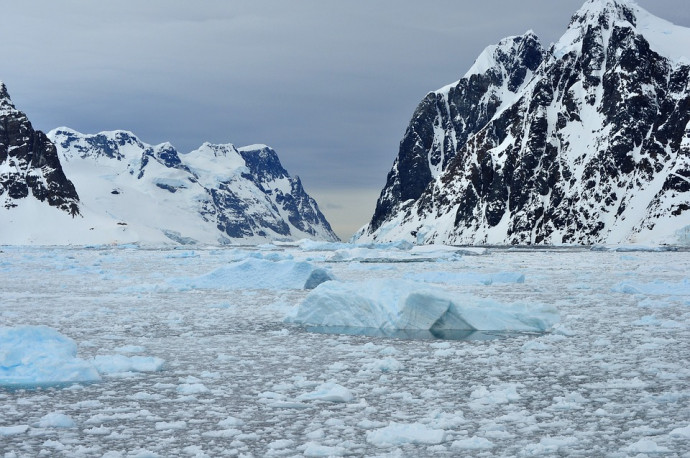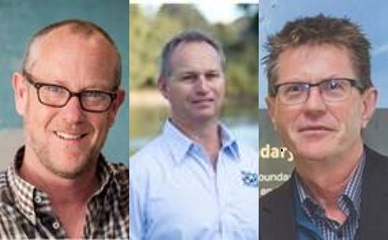The science of sea-level change, impacts and management
A panel discussion exploring the future threat of sea-level rise, and what can be done to mitigate hazards.

About the speakers
Tim Naish
Tim Naish is a Professor in Earth Sciences and was Director of the Antarctic Research Centre at Victoria University of Wellington until 2017, when he took up a RSNZ James Cook Fellowship. His research focuses on past, present and future climate with specific emphasis on how the Antarctic ice sheets respond to climate change and their influence on global sea-level. He has participated in 14 expeditions to Antarctica and helped found ANDRILL, a USD $30M international Antarctic Geological Drilling Program.
He also developed and co-leads the $7 MBIE-funded New Zealand SeaRise Programme, which is improving location-specific sea-level projections for New Zealand, by taking into account latest polar ice sheet contributions and vertical land movements. He has received the New Zealand Antarctic Medal, the Martha Muse Prize for Antarctic Science and Policy and is a Fellow of the Royal Society of New Zealand.

Tim Naish (left), Rick Liefting (center), Rob Bell (right)
Rick Liefting
Rick has over 20 years’ experience in natural hazard assessments and management within New Zealand and overseas. Growing up and studying in the Waikato provides an appreciation of the local context for hazards and what that means for our local communities. After studying Earth Sciences (Coastal Processes) M.Sc at Waikato University, Rick has worked for NIWA, Tonkin & Taylor and currently as lead of Regional Resilience at Waikato Regional Council.
The Regional Resilience team has two primary activities, Resilient Development and Emergency Management. Resilient Development includes providing information and guidance to make appropriate decisions. Recent developments including the Coastal Inundation Tool and upcoming Online Hazards Portal has and will make hazard information more easily accessible to all.
Emergency Management for flood events and marine oil spills includes having appropriate systems and processes in place to both minimise the impact and recover as quickly as possible. Both of these two goals results in ensuring resilient communities within the Waikato Region now and into the future.
Rob Bell
Rob has nearly 40 years’ experience in coastal engineering, risk from natural hazards, and the impacts of climate change on coastal communities and infrastructure.
Rob is the Programme Leader for Climate Adaptation in NIWA’s Climate, Atmosphere & Hazards Centre, coordinating research and consulting activities associated with weather-related hazards and climate impacts and the risks they pose. He has published papers on sea-level rise, coastal hazards (including tsunami), coastal adaptation planning and the development of RiskScape to compare risk from natural hazards.
Rob has been the technical lead on recent coastal road/bridge and airport infrastructure projects, coastal risk exposure reports for the Parliamentary Commissioner for the Environment (2015), implementation guidance on coastal hazard policies in the NZ Coastal Policy Statement (Dept of Conservation) and was the Lead Author of the 2017 coastal guidance for local government published by the Ministry for the Environment for planning adaptation to climate change.
SPEAKER
Tim Naish, Rick Liefting and Rob Bell
ORGANISATION
Geoscience Society of New Zealand
VENUE/DATE
University of Waikato, L Block (Lecture Theatre L01), Hamilton
5:00pm Mon 25 November, 2019 - 7:00pm Mon 25 November, 2019
